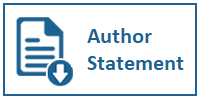DETERMINANT FACTORS OF CASH HOLDING: EVIDENCE FROM INDONESIA
DOI:
https://doi.org/10.31937/akuntansi.v16i1.3470Abstract
Abstract” This study analyzed the effect of profitability, net working capital, cash conversion cycle, dividend policy, and leverage on cash holding in consumer goods industry companies' period 2019-2021. Determining the optimal level of cash holding is essential for a company, as excessively high cash holding can result in missed investment opportunities and returns, while low cash holding can disrupt operational activities and debt default or bankruptcy. The sample in this study was taken using a purposive sampling method. The objects in this study are 20 consumer goods industry companies that were listed on the IDX consecutively during 2019-2021. Secondary financial report data was evaluated using multiple linear regression. The result of this research indicates that profitability (ROA), net working capital (NWC), and dividend policy (DPR) have a significant positive effect on cash holding, leverage (DTA) has a significant negative effect on cash holding, and cash conversion cycle (CCC) has no effect cash holding. According to the findings, profitability, net working capital, dividend policy, and leverage can be used as a point of reference to predict a company's cash holding. We suggest the company more effectively and efficiently manage its assets to generate substantial profits and consequently optimize its cash holding. This study was conducted in the consumer goods industry sector, which had the greatest average level of cash holding. This research differs because it estimates cash holding by combining financial ratios primarily from an asset perspective and management policy (dividend policy).
Keywords: Cash; Dividend; Leverage; Net Working Capital; Profitability
Downloads
Downloads
Published
How to Cite
Issue
Section
License
Authors retain copyright and grant the journal right of first publication with the work simultaneously licensed under a Creative Commons Attribution-ShareAlike International License (CC-BY-SA 4.0) that allows others to share the work with an acknowledgement of the work's authorship and initial publication in this journal.
Authors are able to enter into separate, additional contractual arrangements for the non-exclusive distribution of the journal's published version of the work (e.g., post it to an institutional repository or publish it in a book), with an acknowledgement of its initial publication in this journal.
















